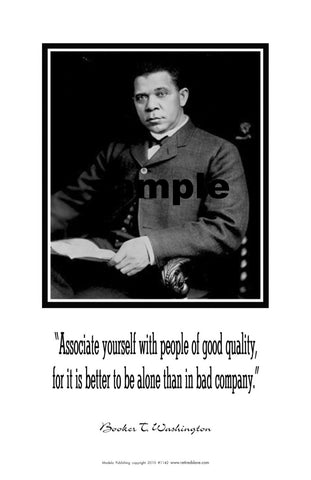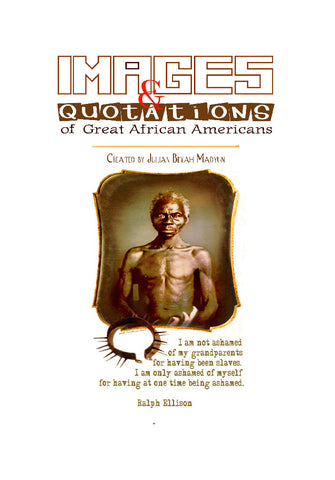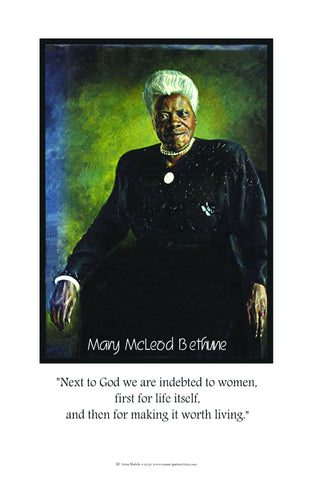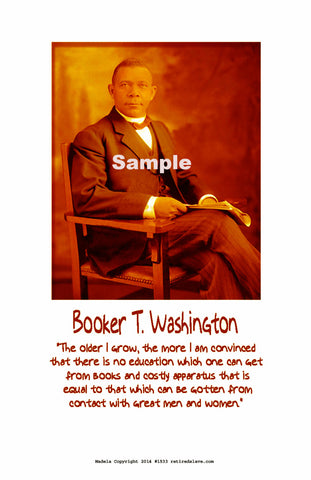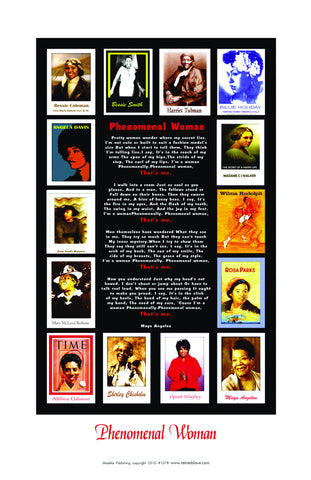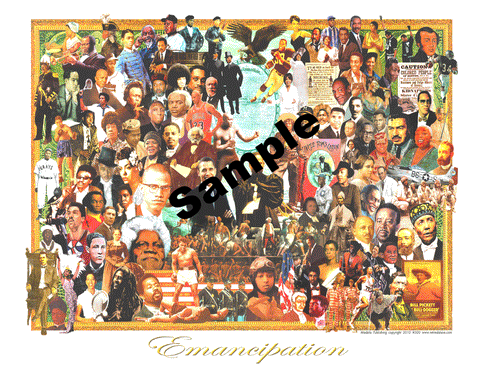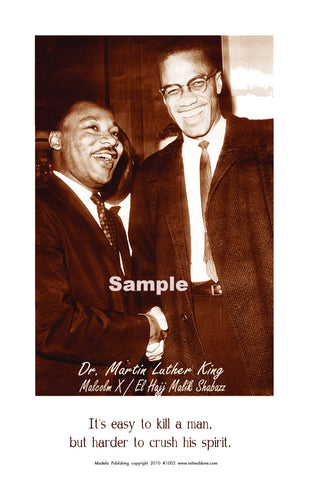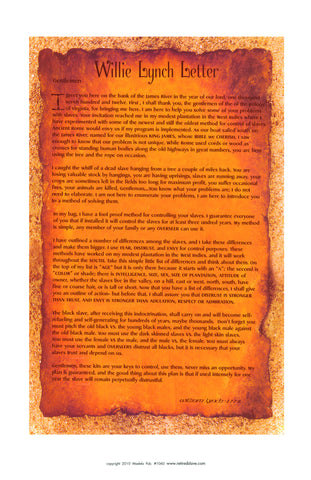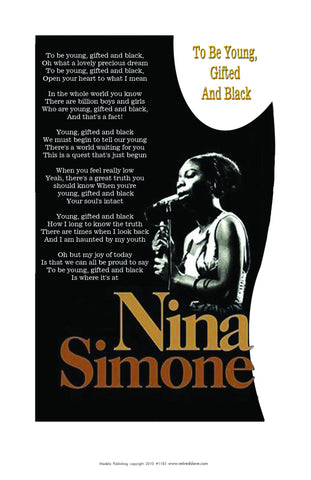A.A. Educators Collection
Browse:
All items
about malcolm x
about sojourner truth
activists
activists NAACP
Africa
african american history
african american history people
African American leadership
African ancestry
African-American History
african-american-actors
african-american-authors
african-american-blues
african-american-business
african-american-comedians
african-american-dancer
african-american-educator
african-american-educators
african-american-history
african-american-jazz
african-american-medical
african-american-military
african-american-musicians
african-american-olympians
african-american-poets
african-american-politicians
african-american-scholars
african-american-singers
african-american-slavery
african-american-soul
african-american-UNIA-ACL
african-americans-explorer
ain t ia woman
Althea Gibson
Andrew young
angela biography
angela davies
angela davis
angela davis 1971
angela davis address
angela davis and george jackson
angela davis are prisons obsolete
angela davis are prisons obsolete summary
angela davis article
angela davis audio
angela davis author
angela davis biography
angela davis black panther
angela davis black panthers
angela davis black power
angela davis blog
angela davis book
angela davis civil rights
angela davis civil rights movement
angela davis dead
angela davis die
angela davis died
angela davis education
angela davis email
angela davis feminist
angela davis fro
angela davis history
angela davis image
angela davis images
angela davis information
angela davis life
angela davis new
angela davis photo
angela davis photos
angela davis pic
angela davis pics
angela davis picture
angela davis pictures
angela davis play
angela davis poster
angela davis posters
angela davis prison industrial complex
angela davis prisons
angela davis racism
angela davis sister
angela davis speaking
angela davis story
angela davis the prison industrial complex
angela davis timeline
angela davis today
angela davis trial
angela davis video
angela davis wanted
angela davis website
angela davis wikipedia
angela davis women
angela davis women race and class
angela davis women race and class summary
angela y davis
angela yvonne davis
Aretha Franklin
Ark
Assata Shakur
autobiography of malcolm x
B.B KING
Back to Africa
Bayard Rustin
Bert Williams
Bert Williams & George Walker
Bessie Smith
Bigotry
Bill Bojangles Robinson
Bill Cosby quotes
Bill Cosby art
Bill Cosby autobiography
Bill Cosby bio
Bill Cosby biography
Bill Cosby book
Bill Cosby drawing
Bill Cosby encyclopedia
Bill Cosby history
Bill Cosby image
Bill Cosby images
Bill Cosby info
Bill Cosby information
Bill Cosby painting
Bill Cosby photo
Bill Cosby photograph
Bill Cosby pic
Bill Cosby picture
Bill Cosby pictures
Bill Cosby poster
Bill Cosby posters
Bill Cosby print
Bill Cosby quote
billie holiday
biography of angela davis
biography on angela davis
Birmingham Baptist Church bombing
black history
black history people
black history pictures
black leadership
Black Man A Moor
black muslims
black muslims malcolm x
black nationalist
Black Panther Party
black People
BLACK PEOPLE RESISTED
black person
black power movement
black power movement leaders
Black Star Line
black women
BLIND WILLIE
board of education
Bob Marley
Bobby Seale
Booker T. Washington quotes
Booker T. Washington art
Booker T. Washington autobiography
Booker T. Washington bio
Booker T. Washington biography
Booker T. Washington book
Booker T. Washington drawing
Booker T. Washington encyclopedia
Booker T. Washington history
Booker T. Washington image
Booker T. Washington images
Booker T. Washington info
Booker T. Washington information
Booker T. Washington painting
Booker T. Washington photo
Booker T. Washington photograph
Booker T. Washington pic
Booker T. Washington picture
Booker T. Washington pictures
Booker T. Washington poster
Booker T. Washington posters
Booker T. Washington print
Booker T. Washington quote
books by sojourner truth
Brown vs Board of Education art
Brown vs Board of Education autobiography
Brown vs Board of Education bio
Brown vs Board of Education biography
Brown vs Board of Education drawing
Brown vs Board of Education encyclopedia
Brown vs Board of Education history
Brown vs Board of Education image
Brown vs Board of Education images
Brown vs Board of Education info
Brown vs Board of Education information
Brown vs Board of Education painting
Brown vs Board of Education photo
Brown vs Board of Education photograph
Brown vs Board of Education pic
Brown vs Board of Education picture
Brown vs Board of Education pictures
Brown vs Board of Education poster
Brown vs Board of Education posters
Brown vs Board of Education print
Brown vs Board of Education quote
Brown vs Board of Education quotes
cab callaway
Carter G. Woodson
Carter G. Woodson quotes
Carter G. Woodson art
Carter G. Woodson autobiography
Carter G. Woodson bio
Carter G. Woodson biography
Carter G. Woodson drawing
Carter G. Woodson encyclopedia
Carter G. Woodson history
Carter G. Woodson image
Carter G. Woodson images
Carter G. Woodson info
Carter G. Woodson information
Carter G. Woodson painting
Carter G. Woodson photo
Carter G. Woodson photograph
Carter G. Woodson pic
Carter G. Woodson picture
Carter G. Woodson pictures
Carter G. Woodson poster
Carter G. Woodson posters
Carter G. Woodson print
Carter G. Woodson quote
Cassius Marcellus Clay
Charles Drew M.D art
Charles Drew M.D autobiography
Charles Drew M.D bio
Charles Drew M.D biography
Charles Drew M.D book
Charles Drew M.D drawing
Charlie Parker
Che Guevara
Civil Rights Act of 1964
civil rights and black power movements
civil rights history
civil rights images
civil rights lynching
Civil Rights Movement
civil rights movement bloody sunday
civil rights movement malcolm x
civil rights photos
civil rights pictures
civil rights records
civil rights selma
civil rights stories
civil war north and south
civil-rights
color blind racism
coretta king
coretta scoot king
coretta scott
Coretta Scott King
coretta scott king accomplishments
coretta scott king aka
coretta scott king book
coretta scott king civil rights
coretta scott king death
Count Basie
Death of Emmett Till
Declaration of Independence
Denmark Vesey
denzel washington malcolm x
Desegregation
differences between martin luther king and malcolm x
Dizzy Gillespie
documents
dorothy dandridge
Dr. King and Malcolm X art
Dr. King and Malcolm X autobiography
Dr. King and Malcolm X bio
Dr. King and Malcolm X biography
Dr. King and Malcolm X book
Dr. King and Malcolm X drawing
Dr. King and Malcolm X encyclopedia
Dr. King and Malcolm X history
Dr. King and Malcolm X image
Dr. King and Malcolm X images
Dr. King and Malcolm X info
Dr. King and Malcolm X information
Dr. King and Malcolm X painting
Dr. King and Malcolm X photo
Dr. King and Malcolm X photograph
Dr. King and Malcolm X pic
Dr. King and Malcolm X picture
Dr. King and Malcolm X pictures
Dr. King and Malcolm X poster
Dr. King and Malcolm X posters
Dr. King and Malcolm X print
Dr. King and Malcolm X quote
Dr. King and Malcolm X quotes
Dr. Martin Luther King Jr. quotes
Dr. Martin Luther King Jr. art
Dr. Martin Luther King Jr. autobiography
Dr. Martin Luther King Jr. bio
Dr. Martin Luther King Jr. biography
Dr. Martin Luther King Jr. book
Dr. Martin Luther King Jr. drawing
Dr. Martin Luther King Jr. encyclopedia
Dr. Martin Luther King Jr. history
Dr. Martin Luther King Jr. image
Dr. Martin Luther King Jr. images
Dr. Martin Luther King Jr. info
Dr. Martin Luther King Jr. information
Dr. Martin Luther King Jr. painting
Dr. Martin Luther King Jr. photo
Dr. Martin Luther King Jr. photograph
Dr. Martin Luther King Jr. pic
Dr. Martin Luther King Jr. picture
Dr. Martin Luther King Jr. pictures
Dr. Martin Luther King Jr. poster
Dr. Martin Luther King Jr. posters
Dr. Martin Luther King Jr. print
Dr. Martin Luther King Jr. quote
Dr.Martin Luther King Jr.
duke ellington
Ebenezer
economic and
El Hajj Malik El Shabazz
elijah farrakhan
Elijah Muhammad
Ella Fitzgerald
Emancipation Proclamation
emancipation000.com
Equality
Ethel Waters
f.o.i.
Fannie Lou Hamer quotes
Fannie Lou Hamer art
Fannie Lou Hamer autobiography
Fannie Lou Hamer bio
Fannie Lou Hamer biography
Fannie Lou Hamer book
Fannie Lou Hamer drawing
Fannie Lou Hamer encyclopedia
Fannie Lou Hamer history
Fannie Lou Hamer image
Fannie Lou Hamer images
Fannie Lou Hamer info
Fannie Lou Hamer information
Fannie Lou Hamer painting
Fannie Lou Hamer photo
Fannie Lou Hamer photograph
Fannie Lou Hamer pic
Fannie Lou Hamer picture
Fannie Lou Hamer pictures
Fannie Lou Hamer poster
Fannie Lou Hamer posters
Fannie Lou Hamer print
Fannie Lou Hamer quote
farrakhan
farrakhan islam
farrakhan malcom x
farrakhan muhammad
farrakhan muslim
farrakhan saviours day
farrakhan speech
Fats Waller
final call farrakhan
First african-american President
First Black President
FORTY ACRES AND A MULE
Frederick Douglass
Frederick Douglass art
Frederick Douglass autobiography
Frederick Douglass bio
Frederick Douglass biography
Frederick Douglass book
Frederick Douglass drawing
Frederick Douglass encyclopedia
Frederick Douglass history
Frederick Douglass image
Frederick Douglass images
Frederick Douglass info
Frederick Douglass information
Frederick Douglass painting
Frederick Douglass photo
Frederick Douglass photograph
Frederick Douglass pic
Frederick Douglass picture
Frederick Douglass pictures
Frederick Douglass poster
Frederick Douglass posters
Frederick Douglass print
Frederick Douglass quote
Frederick Douglass quotes
free angela davis
George Davis
George Jackson
george jackson angela davis
George Washington Carver
George Washington Carver art
George Washington Carver autobiography
George Washington Carver bio
George Washington Carver biography
George Washington Carver book
George Washington Carver drawing
George Washington Carver encyclopedia
George Washington Carver history
George Washington Carver image
George Washington Carver images
George Washington Carver info
George Washington Carver information
George Washington Carver painting
George Washington Carver photo
George Washington Carver photograph
George Washington Carver pic
George Washington Carver picture
George Washington Carver pictures
George Washington Carver poster
George Washington Carver posters
George Washington Carver print
George Washington Carver quote
George Washington Carver quotes
H rap brown
H. Rap Brown
H. Rap Brown art
H. Rap Brown autobiography
H. Rap Brown bio
H. Rap Brown biography
H. Rap Brown book
H. Rap Brown drawing
H. Rap Brown encyclopedia
H. Rap Brown history
H. Rap Brown image
H. Rap Brown images
H. Rap Brown info
H. Rap Brown information
H. Rap Brown painting
H. Rap Brown photo
H. Rap Brown photograph
H. Rap Brown pic
H. Rap Brown picture
H. Rap Brown pictures
H. Rap Brown poster
H. Rap Brown posters
H. Rap Brown print
H. Rap Brown quote
H. Rap Brown quotes
Harlem Renaissance
Harlem Renaissance art
Harlem Renaissance autobiography
Harlem Renaissance bio
Harlem Renaissance biography
Harlem Renaissance drawing
Harlem Renaissance encyclopedia
Harlem Renaissance history
Harlem Renaissance image
Harlem Renaissance images
Harlem Renaissance info
Harlem Renaissance information
Harlem Renaissance painting
Harlem Renaissance photo
Harlem Renaissance photograph
Harlem Renaissance pic
Harlem Renaissance picture
Harlem Renaissance pictures
Harlem Renaissance poster
Harlem Renaissance print
Harlem Renaissance quote
Harlem Renaissance quotes
Harriet Tubman
honorable minister louis farrakhan
Horrible Lynching
Hosea L. Williams
how to make a slave
Huey P. Newton
Ida B. Wells
Ida B. Wells autobiography
Ida B. Wells bio
Ida B. Wells biography
Ida B. Wells book
Ida B. Wells drawing
Ida B. Wells encyclopedia
Ida B. Wells history
Ida B. Wells image
Ida B. Wells images
Ida B. Wells info
Ida B. Wells information
Ida B. Wells painting
Ida B. Wells photo
Ida B. Wells photograph
Ida B. Wells pic
Ida B. Wells picture
Ida B. Wells pictures
Ida B. Wells poster
Ida B. Wells posters
Ida B. Wells print
Ida B. Wells quote
Ida B. Wells quotes
Ida B. Wellsart
imam siraj wahaj
imam siraj wahhaj
infamous willie lynch letter
information on angela davis
is angela davis still living
is the willie lynch letter real
islam
islam MALCOLM X
islam minister louis farrakhan
James Farmer
Jamil Abdullah al-Amin art
Jamil Abdullah al-Amin autobiography
Jamil Abdullah al-Amin bio
Jamil Abdullah al-Amin biography
Jamil Abdullah al-Amin book
Jamil Abdullah al-Amin drawing
Jamil Abdullah al-Amin encyclopedia
Jamil Abdullah al-Amin history
Jamil Abdullah al-Amin image
Jamil Abdullah al-Amin images
Jamil Abdullah al-Amin info
Jamil Abdullah al-Amin information
Jamil Abdullah al-Amin painting
Jamil Abdullah al-Amin photo
Jamil Abdullah al-Amin photograph
Jamil Abdullah al-Amin pic
Jamil Abdullah al-Amin picture
Jamil Abdullah al-Amin pictures
Jamil Abdullah al-Amin poster
Jamil Abdullah al-Amin posters
Jamil Abdullah al-Amin print
Jamil Abdullah al-Amin quote
Jamil Abdullah al-Amin quotes
Jesse Jackson
Jimcrow
jimi Hendrix
john coltrane
John Hanson Was the First President of the United States!
john lewis
john lynch
Joseph Cinque
Josephine Baker
Jr.'s birth home
Ku Klux Klan
leaders of the civil rights and black power movements
Lena Horne
LEST WE FORGET
Little Rock
louis farrakhan
Louis Farrakhan image
Louis Farrakhan images
Louis Farrakhan pictures
louis farrakhan speeches
louis farrakhan wiki
Lynching
Ma Rainey;Louis Armstrong
Mahalia Jackson
MALCOLM X
malcolm assassinated
malcolm autobiography
malcolm biography
malcolm shabbaz
malcolm speech
malcolm speeches
Malcolm x autobiography
Malcolm x quotes
malcolm x 1965
Malcolm x art
malcolm x article
malcolm x assassinated
malcolm x assassination
malcolm x ballot
malcolm x ballot or bullet
malcolm x ballot or the bullet
malcolm x betty
malcolm x betty shabazz
Malcolm x bio
Malcolm x biography
malcolm x black nationalism
malcolm x black panthers
malcolm x black power
Malcolm x book
malcolm x books
malcolm x brothers
malcolm x by any means
malcolm x by any means necessary
malcolm x center
malcolm x change
malcolm x childhood
malcolm x civil rights
malcolm x conk
malcolm x daughter
malcolm x daughters
malcolm x day
malcolm x die
malcolm x education
malcolm x effect
malcolm x elijah muhammad
Malcolm x encyclopedia
malcolm x family
malcolm x film
malcolm x freedom
malcolm x grave
malcolm x hajjmalcolm x 1965
malcolm x history
malcolm x ideas
Malcolm x image
malcolm x images
Malcolm x info
malcolm x information
malcolm x leader
malcolm x learning to read
malcolm x letters
malcolm x life
malcolm x m1
malcolm x martin luther king 1 - 3 $0.05
malcolm x message
malcolm x message to the grassroots
malcolm x movement
malcolm x movie
malcolm x mural
malcolm x music
malcolm x name
malcolm x nation of islam
malcolm x news
malcolm x notesmalcolm x interviews
malcolm x org
malcolm x paper
malcolm x park
Malcolm x photo
Malcolm x photograph
malcolm x photos
malcolm x pic
malcolm x picture
Malcolm x pictures
Malcolm x poster
Malcolm x posters
Malcolm x print
Malcolm x quote
malcolm x red
malcolm x review
malcolm x segregation
malcolm x speaking
malcolm x speaks
malcolm x speech
malcolm x speeches
malcolm x story
malcolm x timeline
malcolm x website
malcolm x wikipedia
malcolm x youtube
malcolmx quotes
Marcus Garvey
Marcus Garvey art
Marcus Garvey autobiography
Marcus Garvey bio
Marcus Garvey biography
Marcus Garvey book
Marcus Garvey drawing
Marcus Garvey encyclopedia
Marcus Garvey history
Marcus Garvey image
Marcus Garvey images
Marcus Garvey info
Marcus Garvey information
Marcus Garvey painting
Marcus Garvey photo
Marcus Garvey photograph
Marcus Garvey pic
Marcus Garvey picture
Marcus Garvey pictures
Marcus Garvey poster
Marcus Garvey posters
Marcus Garvey print
Marcus Garvey quote
Marcus Garvey quotes
Marian Anderson
Martin Luther King
martin luther king jr malcolm x
Martin Luther King Jr. quotes
Martin Luther King Jr. art
Martin Luther King Jr. autobiography
Martin Luther King Jr. bio
Martin Luther King Jr. biography
Martin Luther King Jr. book
Martin Luther King Jr. drawing
Martin Luther King Jr. encyclopedia
Martin Luther King Jr. history
Martin Luther King Jr. image
Martin Luther King Jr. images
Martin Luther King Jr. info
Martin Luther King Jr. information
Martin Luther King Jr. painting
Martin Luther King Jr. photo
Martin Luther King Jr. photograph
Martin Luther King Jr. pic
Martin Luther King Jr. picture
Martin Luther King Jr. pictures
Martin Luther King Jr. poster
Martin Luther King Jr. posters
Martin Luther King Jr. print
Martin Luther King Jr. quote
Marvin Gaye
Mary Church Terrell
Mary McLeod Bethune
Mary McLeod Bethune art
Mary McLeod Bethune autobiography
Mary McLeod Bethune bio
Mary McLeod Bethune biography
Mary McLeod Bethune book
Mary McLeod Bethune drawing
Mary McLeod Bethune encyclopedia
Mary McLeod Bethune history
Mary McLeod Bethune image
Mary McLeod Bethune images
Mary McLeod Bethune info
Mary McLeod Bethune information
Mary McLeod Bethune painting
Mary McLeod Bethune photo
Mary McLeod Bethune photograph
Mary McLeod Bethune pic
Mary McLeod Bethune picture
Mary McLeod Bethune pictures
Mary McLeod Bethune poster
Mary McLeod Bethune posters
Mary McLeod Bethune print
Mary McLeod Bethune quote
Mary McLeod Bethune quotes
Medgar Evers
Mental Slavery
mgt
Michael Jackson
Miles Davis
milliom man march
minister abdul muhammad
minister farrakhan
Minister Louis Farrakhan
Minister Louis Farrakhan art
Minister Louis Farrakhan autobiography
Minister Louis Farrakhan bio
Minister Louis Farrakhan biography
Minister Louis Farrakhan book
Minister Louis Farrakhan drawing
Minister Louis Farrakhan encyclopedia
Minister Louis Farrakhan history
Minister Louis Farrakhan image
Minister Louis Farrakhan images
Minister Louis Farrakhan info
Minister Louis Farrakhan information
minister louis farrakhan on obama
Minister Louis Farrakhan painting
Minister Louis Farrakhan photo
Minister Louis Farrakhan photograph
Minister Louis Farrakhan pic
Minister Louis Farrakhan picture
Minister Louis Farrakhan pictures
Minister Louis Farrakhan poster
Minister Louis Farrakhan posters
Minister Louis Farrakhan print
Minister Louis Farrakhan prints
Minister Louis Farrakhan quote
Minister Louis Farrakhan quotes
minister louis farrakhan speaks
minister louis farrakhan speech
minister louis farrakhan speeches
mlk malcolm x
Montgomery Bus Boycott
moorish americans
Motown
Muhammad Ali
Muhammad Ali art
Muhammad Ali autobiography
Muhammad Ali bio
Muhammad Ali biography
Muhammad Ali book
Muhammad Ali drawing
Muhammad Ali encyclopedia
Muhammad Ali history
Muhammad Ali image
Muhammad Ali images
Muhammad Ali info
Muhammad Ali information
muhammad ali malcolm x
Muhammad Ali painting
Muhammad Ali photo
Muhammad Ali photograph
Muhammad Ali pic
Muhammad Ali picture
Muhammad Ali pictures
Muhammad Ali poster
Muhammad Ali posters
Muhammad Ali print
Muhammad Ali quote
Muhammad Ali quotes
muhammad allah
Muhammad Speaks newspaper
muhammad teachings
Muslim
NAACP
narrative of sojourner truth
Nat King Cole
nat turner
nation of islam
nation of moorish americans
Negroes
Nelson Mandela
nigger
Nina Simon
Noble Drew Aliauthors
Notorious B.I.G
One Aim
One Destiny
Paul Robeson
Paul Robeson art
Paul Robeson autobiography
Paul Robeson bio
Paul Robeson biography
Paul Robeson book
Paul Robeson drawing
Paul Robeson encyclopedia
Paul Robeson history
Paul Robeson image
Paul Robeson images
Paul Robeson info
Paul Robeson information
Paul Robeson painting
Paul Robeson photo
Paul Robeson photograph
Paul Robeson pic
Paul Robeson picture
Paul Robeson pictures
Paul Robeson poster
Paul Robeson posters
Paul Robeson print
Paul Robeson quote
Paul Robeson quotes
Phenomenal Women
photo of angela davis
President Barack Obama
prison labor
protests
Race riots
racial dignity
Racism
Rap. The Two Real Coons
Ray Charles
Ray Charles art
Ray Charles autobiography
Ray Charles bio
Ray Charles biography
Ray Charles book
Ray Charles drawing
Ray Charles encyclopedia
Ray Charles history
Ray Charles image
Ray Charles images
Ray Charles info
Ray Charles information
Ray Charles painting
Ray Charles photo
Ray Charles photograph
Ray Charles pic
Ray Charles picture
Ray Charles pictures
Ray Charles poster
Ray Charles posters
Ray Charles print
Ray Charles quote
Ray Charles quotes
rebellion
Reconstruction
Reconstruction40 ACRES AND A MULE
Religion
Retired Slave
Robert Johnson
Robert Terrell
Rosa Parks
Roy Wilkins
Ruby Dee and Ossie Davis
sacred of female minister louis farrakhan
Sam Cooke
Sammy
Sarah Vaughann-american-business
scholars
SCLC
SCOTT JOPLIN
shabazz malcolm x
slave rebellion
slave traders
slave-ship
sojourner biography
sojourner history
sojourner quotes
sojourner speech
Sojourner Truth
sojourner truth 1851
sojourner truth abolitionist
sojourner truth academy
sojourner truth accomplishments
sojourner truth ain't
sojourner truth art
sojourner truth article
sojourner truth author
sojourner truth autobiography
sojourner truth bibliography
sojourner truth bio
sojourner truth biographies
sojourner truth biography
sojourner truth books
sojourner truth born
sojourner truth childhood
sojourner truth death
sojourner truth facts
sojourner truth grave
sojourner truth harriet tubman
sojourner truth history
sojourner truth images
sojourner truth information
sojourner truth life
sojourner truth narrative
sojourner truth photo
sojourner truth photos
sojourner truth pic
sojourner truth pictuers
sojourner truth pictures
sojourner truth portrait
sojourner truth poster
sojourner truth quotes
sojourner truth slavery
sojourner truth speaking
sojourner truth speeches
sojourner truth statue
sojourner truth timeline
sojourner truth wikipedia
sojourner truth women sojourner truth famous
sojourner truth womens rights
sojourner truths
sojourney truth
Southern Freedom Movement
Stevie Wonder
Stokely Carmichael
Student Nonviolent
study guide 19 minister louis farrakhan
the autobiography of malcolm x
the biography of malcolm x
the black power movement
The Fight of the Century
the honorable minister louis farrakhan
The murder of three young civil rights workers
The Soul of America;Sarah Vaughan
the willie lynch letter
the willie lynch letter and the making of a slave
Thelonious Monk
To Be Sold
trial of angela davis
Tupac Shakur
Uncle TomAbdulrahman Ibrahim ibn
W. E. B. DuBois
W. E. B. DuBois art
W. E. B. DuBois autobiography
W. E. B. DuBois bio
W. E. B. DuBois biography
W. E. B. DuBois book
W. E. B. DuBois drawing
W. E. B. DuBois encyclopedia
W. E. B. DuBois history
W. E. B. DuBois image
W. E. B. DuBois images
W. E. B. DuBois info
W. E. B. DuBois information
W. E. B. DuBois painting
W. E. B. DuBois photo
W. E. B. DuBois photograph
W. E. B. DuBois pic
W. E. B. DuBois picture
W. E. B. DuBois pictures
W. E. B. DuBois poster
W. E. B. DuBois posters
W. E. B. DuBois print
W. E. B. DuBois quote
W. E. B. DuBois quotes
W.D. Mohammed
wd mohammed
william lynch letter
william lynch speech
willie lynch
willie lynch 1712
Willie Lynch letter
willie lynch letter book
willie lynch letter fake
willie lynch letter hoax
willie lynch letter how to make a slave
Willie Lynch letter image
Willie Lynch letter photo
Willie Lynch letter pic
Willie Lynch letter picture
Willie Lynch letter poster
willie lynch letter real
willie lynch letter summary
willie lynch letter wiki
willie lynch papers
willie lynch slave
willie lynch slavery
willie lynch speech
willie lynch speech image
Wilma Rudolph
women race and class by angela davis
Yarrow Mamou
zora neale hurston
Sort By:
Featured
Price: Low to High
Price: High to Low
A-Z
Z-A
Oldest to Newest
Newest to Oldest
Best Selling
Generally speaking, Texas’ white population viewed the Freedmen’s Bureau’s agents as an occupying force and not as an agency to help transition blacks from slavery to freedom. Education, denied them under slavery, was essential to the African-American understanding of freedom. Young and old, the freed people flocked to the schools established after the Civil War. For both races, Reconstruction laid the foundation for public schooling in the South. Northern benevolent societies, the Freedmen’s Bureau, and, after 1868, state governments, provided most of the funding for black education, but the initiative often lay with blacks themselves, who purchased land, constructed buildings, and raised money to hire teachers. The desire for learning led families to move to towns and cities so that their children could have access to education, and children to instruct their parents after school hours. Reconstruction also witnessed the creation of the nation’s first black colleges, including Howard University in Washington, D.C., Fisk University in Tennessee and Hampton Institute in Virginia. Initially, these institutions emphasized the training of black teachers and by 1869, blacks outnumbered whites among the nearly 3,000 men and women teaching the freed- people in the South. Before the Civil War, only North Carolina among Southern states had established a comprehensive system of education for white children. During Reconstruction, public education came to the South.
